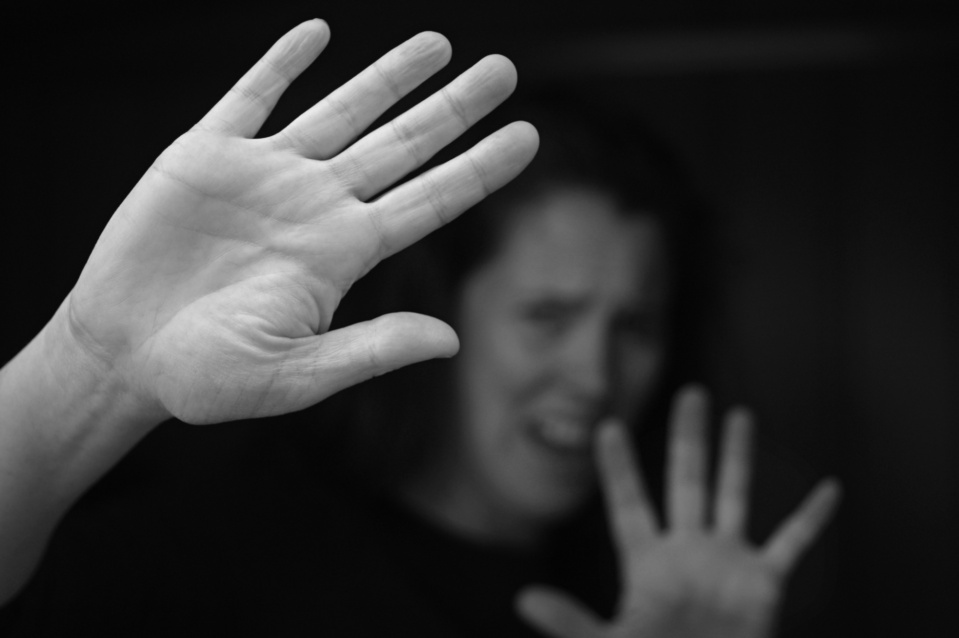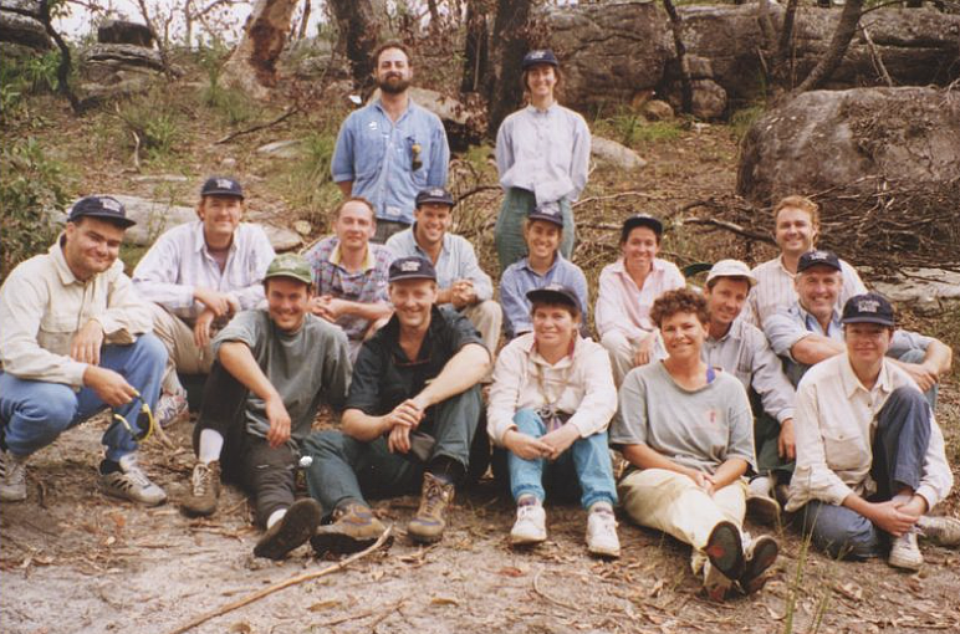
ICDA and BoardPro partnership unlocks digital governance tools for not-for-profits nationwide
Posted on 10 Dec 2025
Adele Stowe-Lindner, Executive Director, Community Directors The Institute of Community Directors…
Posted on 25 Mar 2025
By Greg Thom, journalist, Institute of Community Directors Australia

Charities Minister Andrew Leigh has called out the widening inequality gap in Australia, saying it could have profound social implications if not adequately addressed.
In a speech at the recent Catholic Social Services Australia conference in Sydney, Leigh said that Australians experienced significant upward social mobility and rising standards of living in the decades following WWII.
This was powered by strong unions, progressive taxation, expanded public services, and affordable housing policies.
Leigh said that since the 1980s, however, much of that progress toward a fairer and more equitable society had been reversed.
“Today, the top one percent of income earners receives nearly 10 percent of national income, nearly doubling their share from 40 years ago.

“Wealth inequality is even more extreme, with the richest fifth owning more than 60 times the wealth of the bottom fifth.”
Leigh said this widening gap should be viewed not just in economic terms but in the way it profoundly affects people’s everyday lives.
“Those at the bottom face greater health challenges, including a stark difference in life expectancy.
“Australians in the richest fifth of the population live an average of six years longer than those in the poorest fifth.”
Leigh said the poorest Australians have seven fewer teeth on average due to poor dental care.
When it comes to education, the wealth gap translates into substantial resource disparities between affluent and poorer communities.
“Inequality does not simply represent a difference in wealth; it shapes our society,” said Leigh.
“Excessive inequality erodes social cohesion, reducing empathy and undermining community bonds.”
“Inequality is not just an abstract economic issue; it affects our communities, our health, our opportunities, and our sense of national cohesion.”
Leigh said that when wealth is concentrated among a few, society becomes fragmented.
“Our sense of collective responsibility diminishes, and the fabric that binds us as Australians weakens.”
Leigh said that for too many Australians, the promise of a fair go – the belief that effort and hard work determine success, not birth or background – has felt increasingly out of reach.
“Inequality is not just an abstract economic issue; it affects our communities, our health, our opportunities, and our sense of national cohesion.”
While he acknowledged that no government is perfect, Leigh outlined measures he said the Albanese government had undertaken since being elected in 2022 to ensure prosperity was shared more fairly across society.
Leigh said one of the most direct ways to reduce inequality was by lifting wages and ensuring job security, something the government had delivered for 2.6 million Australians.
He said these pay rises had ensured that minimum wage workers were not left behind as the cost of living rose.
“Furthermore, our government has tackled insecure work by introducing stronger protections for casual employees who want to transition to permanent work, establishing minimum standards for gig economy workers, and enforcing ‘same job, same pay’ provisions to prevent labour hire workers from being exploited.
“These reforms help ensure that Australians can rely on stable incomes, reducing the financial precarity that fuels inequality.”
Leigh said tax policy played a crucial role in shaping economic fairness.
He said the introduction of the stage three tax cuts had allowed a wider range of the population to keep more of what they earned while ensuring that the system remained progressive.
“By maintaining a fair and responsible tax structure, we can fund essential public services while ensuring that the most fortunate Australians contribute their fair share.”
Leigh said a strong, targeted welfare system was essential to reducing inequality.
He said the government had implemented several measures designed to help people in need and prevent them becoming trapped in cycles of disadvantage, including:
Leigh described housing inequality as one of the most pressing economic issues currently facing Australia.
He said the government had responded by undertaking the largest investment in social and affordable housing in more than a decade.
Measures included the Housing Australia Future Fund, designed to relieve homelessness and housing stress by delivering more than 55,000 new social and affordable homes.
Leigh said the government had also introduced measures designed to strengthen the rights of renters, including:
“By making renting fairer and ensuring more Australians have access to stable, affordable housing, we are creating a foundation for economic security and social mobility.”
Leigh said breaking the cycle of inequality started with education.
“That’s why we have delivered cheaper childcare for 96 per cent of families with children in early education – an investment that not only reduces financial strain but also ensures that more children, regardless of their family’s income, start life with the educational support they need.”
Leigh said the government had also ensured that all schools were funded to the schooling resource standard and committed to providing more than 500,000 free TAFE places.
“By making education more accessible, we are expanding opportunities for people from all backgrounds, ensuring that no one is locked out of good jobs because they cannot afford the necessary training.”
Leigh said it was impossible to address economic inequality without considering gender inequality.
Measures he said the government had introduced to help close the gender pay gap and ensure that women were not financially penalised for taking on caring responsibilities included:
“The gender pay gap is still too high, but it is also at an all-time low.”
Leigh said inequality was exacerbated when essentials became unaffordable, which is why the government had delivered targeted cost-of-living measures, including:
Leigh said that by expanding investment in renewable energy and breaking down barriers to new market entrants, the government was helping to reduce energy costs for consumers while ensuring a transition to a cleaner economy.
“High energy prices disproportionately impact low-income Australians, and our efforts to foster a more competitive and efficient energy market are directly reducing cost-of-living pressures,” he said.
Leigh said low-income Australians faced shorter life expectancies and higher rates of chronic illness.
He said the government had responded by:
Leigh, who is the author of Battlers and Billionaires, said a truly fair economy was one where businesses compete on a level playing field and where consumers and small businesses were not left behind.
“Monopolies increase inequality by transferring resources from consumers (the many) to shareholders (the few),” he said.
“The Albanese government has prioritised competition reform to prevent market concentration from deepening inequality.”
Leigh listed strengthening competition in the grocery sector as one of the government’s key achievements.
“By increasing regulatory oversight and cracking down on anti-competitive behaviour by major supermarket chains, we are ensuring fairer prices at the checkout.”
Leigh said an overhaul of merger laws and a revitalised National Competition Policy was also putting downward pressure on prices and increasing fairness.
“This approach reflects our commitment to an economy that works for everyone, not just those at the top.”
Leigh said government policies must be grounded in evidence, not ideology.
He said the creation of the Australian Centre for Evaluation and plans to expand the use of randomised controlled trials in policymaking, reflected the government’s commitment to ensuring that every dollar spent on social programs delivered real results.
“By rigorously evaluating what works, we can scale up the most effective initiatives, ensuring that public investment leads to meaningful reductions in inequality.”
Leigh said addressing inequality was a profound challenge, but not insurmountable.
“Australian history reminds us that inequality is never inevitable. It expands or shrinks based on the decisions we make collectively as a society.
“Together, we can create a society where dignity, justice, and opportunity are the lived reality for every Australian.”
Canberra urged to boost Jobseeker by $20 per day

Posted on 10 Dec 2025
Adele Stowe-Lindner, Executive Director, Community Directors The Institute of Community Directors…

Posted on 10 Dec 2025
The Australia Institute has called on the federal government to force Australian businesses to be…

Posted on 10 Dec 2025
Economic empowerment is essential to enabling recovery, restoring agency and preventing future…
Posted on 10 Dec 2025
A long-time advocate for rough sleepers in northern New South Wales has been named her state’s…

Posted on 10 Dec 2025
What a year 2025 has been, particularly at a national level where the Parliament and politics as we…

Posted on 10 Dec 2025
Anyone working in an organisation knows it: meetings follow one after another at a frantic pace. On…

Posted on 10 Dec 2025
As a qualified yoga instructor who learned the practice in her hometown of Mumbai, Ruhee Meghani…

Posted on 10 Dec 2025
Community Directors trainer Jon Staley knows from first-hand experience the cost of ignoring…

Posted on 10 Dec 2025
Stressed, overwhelmed, exhausted… if you’re on a not-for-profit board and these words sound…

Posted on 10 Dec 2025
The Institute of Community Directors Australia trains over 22,000 people each year, which gives us…

Posted on 09 Dec 2025
The late Sir Vincent Fairfax is remembered as a business leader, a chairman of AMP, and an active…

Posted on 08 Dec 2025
A pioneering welfare effort that helps solo mums into self-employment, a First Nations-led impact…